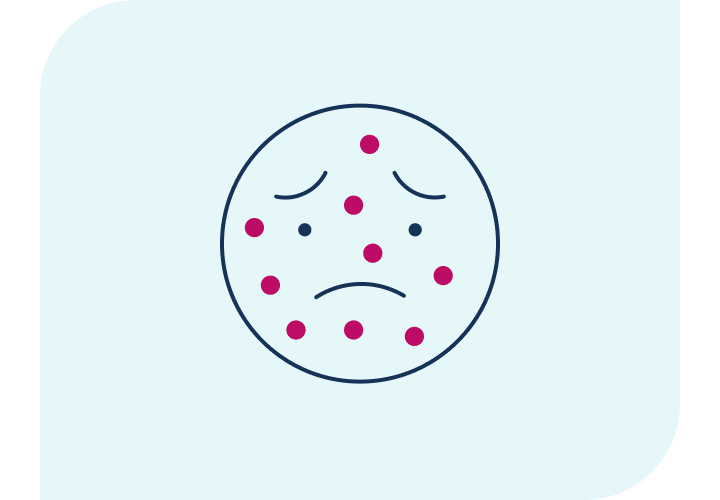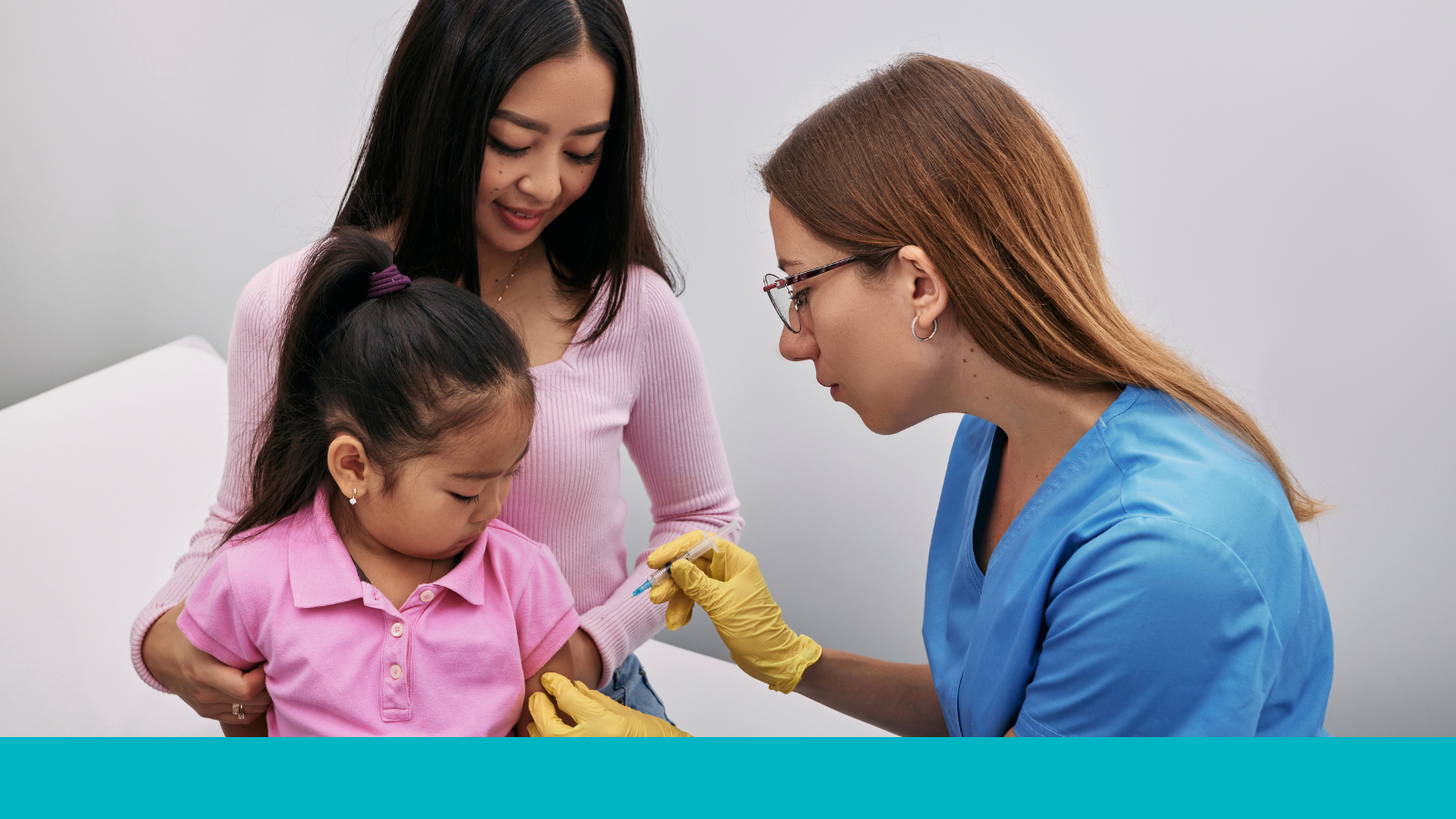Last Updated February 27, 2026
What to Know about the Ongoing Measles Outbreak
From January 1, 2025, through February 26, 2026, there have been 3,417 confirmed measles cases in the United States. Of these, 3,386 measles cases were reported by 45 states and jurisdictions*. 31 measles cases were reported among international travelers in the U.S.
About 3,178 (93%) of these cases were confirmed in people who were unvaccinated or did not know their vaccination status.
The CDC has confirmed three deaths associated with the ongoing measles outbreak: two children in Texas who tested positive for measles and were not vaccinated against the disease, and an unvaccinated adult in New Mexico who tested positive for measles after dying. Additionally, the Los Angeles County Department of Public Health confirmed one death of a child from a measles-related complication.
The United States is currently at risk of losing its measles elimination status, which the country received in 2000. Measles is highly contagious and can spread easily. Continuous transmission occurs when measles spreads across communities over a period of time, and is not isolated to a single community or brought in from another country. Countries have “eliminated” measles when they successfully stop continuous transmission of the virus for at least 12 consecutive months, as indicated by high-quality surveillance.
The United States is at risk of losing this status due to several factors, including:
- Ongoing outbreaks across the country. Between 2001 and 2011, there were 64 recorded measles outbreaks (three or more measles cases). In 2025, there have been 45 reported measles outbreaks.
- High rates of local transmission. Between 2001 and 2011, 40% of measles cases came from outside the United States. In 2025, 12% of cases were imported, indicating an increase in local transmission.
- Decreased measles vaccination rates. The measles, mumps, and rubella (MMR) vaccination rate among kindergarten students in the United States was 92.5% in the 2024-25 school year, down from the pre-pandemic rate of 95%.
PHCC will continue to monitor the U.S.’s measles elimination status and update this content as needed.
* Alabama, Alaska, Arizona, Arkansas, California, Colorado, Connecticut, Florida, Georgia, Hawaii, Idaho, Illinois, Indiana, Iowa, Kansas, Kentucky, Louisiana, Maine, Maryland, Michigan, Minnesota, Missouri, Montana, Nebraska, Nevada, New Jersey, New Mexico, New York (including New York City), North Carolina, North Dakota, Ohio, Oklahoma, Oregon, Pennsylvania, Rhode Island, South Carolina, South Dakota, Tennessee, Texas, Utah, Vermont, Virginia, Washington, Wisconsin, and Wyoming.
- Measles is highly contagious. Children who are unvaccinated are particularly susceptible to measles and should avoid exposure. Per CDC data, one out of five children who contract measles will be hospitalized, and children who contract measles are at risk of pneumonia and death.
- If you have been exposed to someone with measles or display symptoms, like a rash that spreads from the face to the rest of the body, you should isolate and contact a healthcare provider immediately. If you are unvaccinated and may have been exposed to measles, you can receive the MMR (measles-mumps-rubella) vaccine up to 72 hours after exposure to help prevent or reduce the severity of an infection.
- Vaccination is the most effective way to avoid contracting measles and can also help limit its spread in communities. Within two to three weeks of receiving the recommended doses of the measles-mumps-rubella (MMR) vaccine or measles-mumps-rubella-varicella (MMRV), the immune system is ready to protect against measles. In rare cases, fully vaccinated people may contract measles, but their symptoms tend to be mild compared to those who are unvaccinated and contract measles.
- Options: Two vaccines can help prevent measles in children 12 months to 12 years old: measles-mumps-rubella (MMR) vaccine and measles-mumps-rubella-varicella (MMRV) vaccine.
- Doses: Both the MMR vaccine and the MMRV vaccine require two doses. The first dose of either vaccine is typically administered between 12 and 15 months of age. The second dose of either vaccine is typically administered at 4 years of age. The key difference between MMR and MMRV is that MMRV reduces the number of injections a child receives. Instead of four separate injections, a child may receive two or three separate injections if a caregiver chooses the MMRV vaccine. This decision should be made in consultation with a healthcare professional.
- Getting the vaccine: The American Academy of Pediatrics (AAP) schedule of recommended vaccines is the most effective way to protect infants, children, and teens against measles. The AAP schdeule recommends giving families a choice of MMR or MMRV vaccine for the first dose.
- Vitamin A does not prevent measles. The only way to prevent measles is with the MMR vaccine.
- If you are unvaccinated or unsure of your vaccination status and are located near a measles outbreak, you should get the MMR vaccine immediately.
- Babies under 12 months of age do not have mature enough immune systems to be vaccinated against measles, so it is important to vaccinate anyone who will be interacting with them.
Talking Points
What is Measles?
- Measles is a disease that infects the lungs and breathing passages like the nose, mouth, and throat, and spreads throughout the body.
- Anyone can contract measles, but it most commonly affects children. Certain groups are most at risk for serious measles complications, including:
- Children ages five and under
- Adults ages 20 and over
- Pregnant people
- People with immunocompromised health
- Measles symptoms can include coughing, high fevers, diarrhea, a runny nose, eye and ear infections, and a rash all over the body. Severe symptoms include hearing loss and death.
Measles Transmission
- Measles is highly contagious. Someone who is infected can spread the disease to other people before noticing any symptoms, especially in the four days before and after a rash develops.
- Data show that unvaccinated people have a 90% likelihood of contracting measles if exposed. Unvaccinated children who have not previously been infected are more likely to get infected.
Measles Vaccination and Prevention
- Vaccination is the most effective way to avoid contracting and spreading measles. Individuals with a history of prior infection or vaccination who have received the full series of measles-mumps-rubella (MMR) vaccines are 97% protected and are unlikely to contract measles. In the rare case when a vaccinated person contracts measles, their symptoms tend to be less severe.
- Additionally, measles outbreaks typically occur in communities with high numbers of people who are unvaccinated. Vaccination can help reduce the spread of measles in communities and prevent infection in the small number of vaccinated people who do not have full immunity.
- Two vaccines can help prevent measles in children 12 months to 12 years old: measles-mumps-rubella (MMR) vaccine and measles-mumps-rubella-varicella (MMRV) vaccine. Both the MMR vaccine and the MMRV vaccine require two doses. The first dose of either vaccine is typically administered between 12 and 15 months of age. The second dose of either vaccine is typically administered at 4 years of age. Since 2009, the Centers for Disease Control and Prevention (CDC) recommends that the first dose be the MMR vaccine with a separately administered first dose of the varicella vaccine, though the combined MMRV vaccine has remained available as a first dose option if preferred by a parent or caregiver and approved by a health care professional. The CDC recommends either the MMR or MMRV for the second dose.
- It only takes a few days for antibodies to develop in response to the MMR vaccine. Within two to three weeks of vaccination, the immune system is ready to protect against measles.
- Vitamin A does not prevent measles. The only way to prevent measles is with the MMR vaccine. Taking high doses of vitamin A may be dangerous as it can lead to toxicity, which means it can become poisonous. High doses of vitamin A can lead to nausea, vomiting, headache, fatigue, joint and bone pain, blurry vision, skin/hair problems, liver damage, confusion, coma, and other complications.
Measles Treatment
- There is no treatment for measles, but you can take actions to feel better and prevent complications. If you or your child has measles or you believe you have been exposed, isolate yourself from others and contact a healthcare provider immediately.
- Hydration, rest, avoiding harsh light, and taking a fever reducer or pain reliever can also help relieve symptoms.








